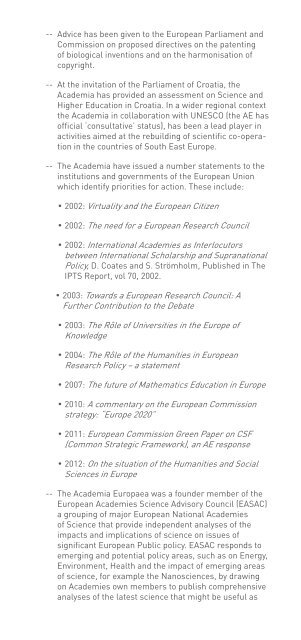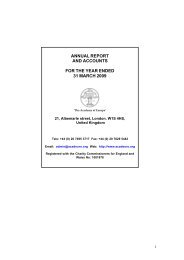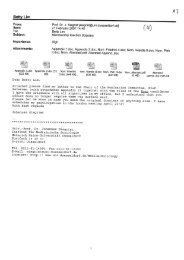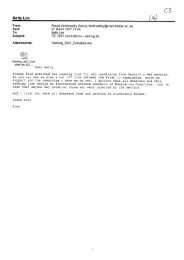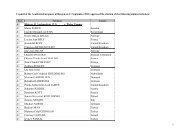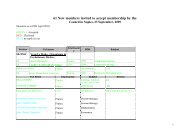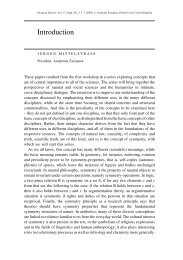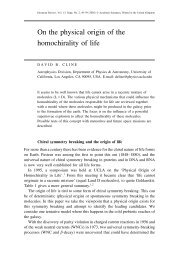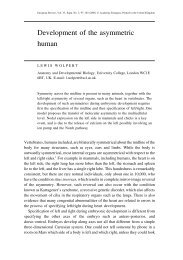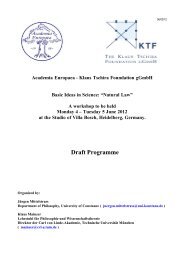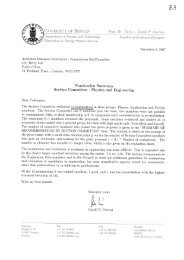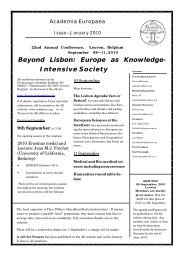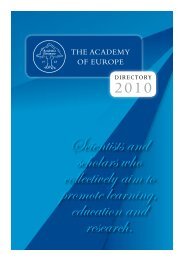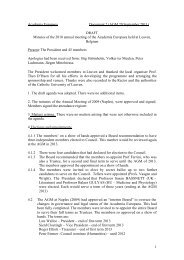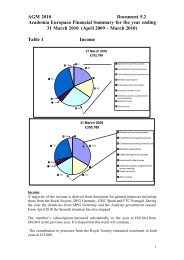here - Academia Europaea
here - Academia Europaea
here - Academia Europaea
- No tags were found...
Create successful ePaper yourself
Turn your PDF publications into a flip-book with our unique Google optimized e-Paper software.
-- Advice has been given to the European Parliament andCommission on proposed directives on the patentingof biological inventions and on the harmonisation ofcopyright.-- At the invitation of the Parliament of Croatia, the<strong>Academia</strong> has provided an assessment on Science andHigher Education in Croatia. In a wider regional contextthe <strong>Academia</strong> in collaboration with UNESCO (the AE hasofficial ‘consultative’ status), has been a lead player inactivities aimed at the rebuilding of scientific co-operationin the countries of South East Europe.-- The <strong>Academia</strong> have issued a number statements to theinstitutions and governments of the European Unionwhich identify priorities for action. These include:• 2002: Virtuality and the European Citizen• 2002: The need for a European Research Council• 2002: International Academies as Interlocutorsbetween International Scholarship and SupranationalPolicy, D. Coates and S. Strömholm, Published in TheIPTS Report, vol 70, 2002.• 2003: Towards a European Research Council: AFurther Contribution to the Debate• 2003: The Rôle of Universities in the Europe ofKnowledge• 2004: The Rôle of the Humanities in EuropeanResearch Policy – a statement• 2007: The future of Mathematics Education in Europe• 2010: A commentary on the European Commissionstrategy: “Europe 2020”• 2011: European Commission Green Paper on CSF(Common Strategic Framework), an AE response• 2012: On the situation of the Humanities and SocialSciences in Europe-- The <strong>Academia</strong> <strong>Europaea</strong> was a founder member of theEuropean Academies Science Advisory Council (EASAC)a grouping of major European National Academiesof Science that provide independent analyses of theimpacts and implications of science on issues ofsignificant European Public policy. EASAC responds toemerging and potential policy areas, such as on Energy,Environment, Health and the impact of emerging areasof science, for example the Nanosciences, by drawingon Academies own members to publish comprehensiveanalyses of the latest science that might be useful as


